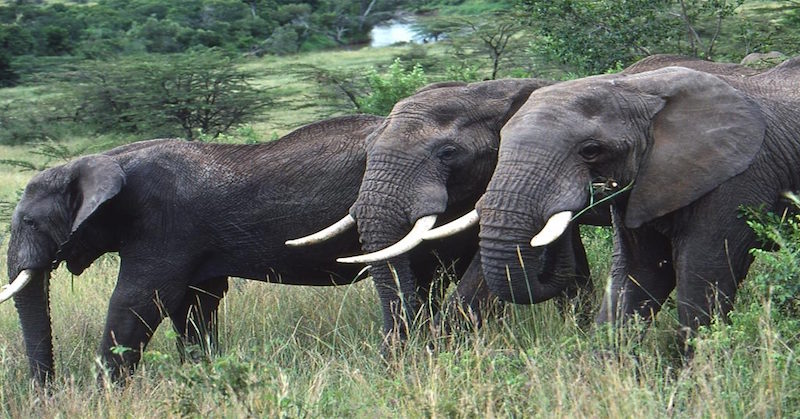The U.S. Fish and Wildlife Service announced a near-total ban on the commercial trade of African elephant ivory last week. Because African elephants are projected to go extinct within the next decade, the U.S. Fish and Wildlife Service announced a near-total ban on the commercial trade of the creatures’ ivory last Thursday.
According to the organization, it was only a matter of time before the ban was implemented, as the public is passionate about protecting the endangered mammals.
Said director Dan Ashe: “Since we proposed this rule in 2015, we received more than 1.3 million comments from the public, demonstrating that Americans care deeply about elephants and overwhelmingly support African elephant conservation.” According to the new guidelines, ivory can be sold if it was brought into the United States before it was listed as endangered or if the elephant died of natural causes, as long as there is documentation.
The only items that may now be sold are genuine antiques, such as ivory statues, artwork or chiseled chess pieces – all of which have been lawfully imported, and musical instruments that were made using less than 200 grams of ivory. Ashe told The New York Times that these items don’t drive poaching.
Wildlife advocates believe that the new rules will eliminate opportunities for traffickers to use the legal ivory markets as a cover for illegal imports.
After China, the United States is the second largest ivory market in the world, according to the USFW. This has resulted in an elephant being killed every 15 minutes for its tusks.
The unspeakable reality resulted in Kenyan activists burning 105 tons of elephant tusks and rhino horns – representing 700 animals – last month to send a strong message that elephants are worth more alive.
Because nearly 100 elephants are murdered each day for their tusks, the new rules will do more than help fulfill President Obama’s 2013 executive order on combating wildlife trafficking in the United States, they’ll help to support other countries’ efforts and end poaching. Perhaps it’s not too late to save the majestic beasts from extinction. “We still have much to do to save this species, but today is a good day for the African elephant,” said Ashe.
*Article originally appeared at Expand Your Consciousness.













